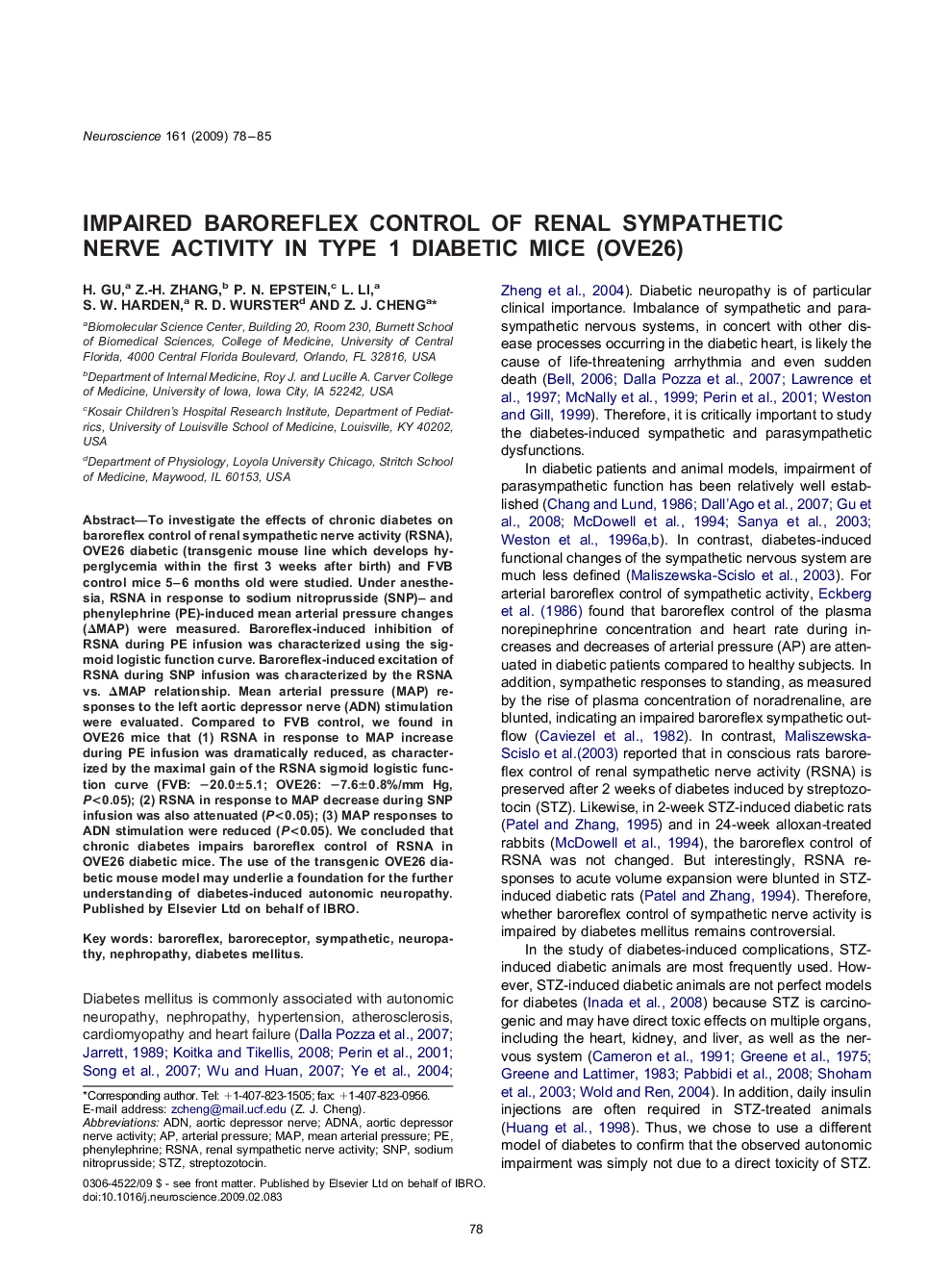| Article ID | Journal | Published Year | Pages | File Type |
|---|---|---|---|---|
| 4339903 | Neuroscience | 2009 | 8 Pages |
To investigate the effects of chronic diabetes on baroreflex control of renal sympathetic nerve activity (RSNA), OVE26 diabetic (transgenic mouse line which develops hyperglycemia within the first 3 weeks after birth) and FVB control mice 5–6 months old were studied. Under anesthesia, RSNA in response to sodium nitroprusside (SNP)– and phenylephrine (PE)-induced mean arterial pressure changes (ΔMAP) were measured. Baroreflex-induced inhibition of RSNA during PE infusion was characterized using the sigmoid logistic function curve. Baroreflex-induced excitation of RSNA during SNP infusion was characterized by the RSNA vs. ΔMAP relationship. Mean arterial pressure (MAP) responses to the left aortic depressor nerve (ADN) stimulation were evaluated. Compared to FVB control, we found in OVE26 mice that (1) RSNA in response to MAP increase during PE infusion was dramatically reduced, as characterized by the maximal gain of the RSNA sigmoid logistic function curve (FVB: −20.0±5.1; OVE26: −7.6±0.8%/mm Hg, P<0.05); (2) RSNA in response to MAP decrease during SNP infusion was also attenuated (P<0.05); (3) MAP responses to ADN stimulation were reduced (P<0.05). We concluded that chronic diabetes impairs baroreflex control of RSNA in OVE26 diabetic mice. The use of the transgenic OVE26 diabetic mouse model may underlie a foundation for the further understanding of diabetes-induced autonomic neuropathy.
